Filter by
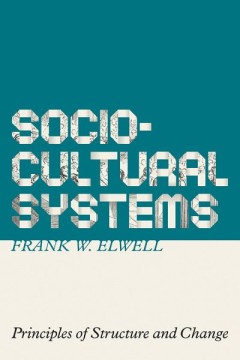
Sociocultural Systems Principles of Structure and Change
Macrosociology—the study of large-scale social structures and the fundamental principles of social organization—was the style of sociology practiced by the founders of the discipline. Today, the social theories of Karl Marx, Max Weber, Émile Durkheim, and Herbert Spencer (among others) are commonly studied as part of the history of the field, but, although the macrosociological approach th…
- Edition
- -
- ISBN/ISSN
- 9781927356203.01
- Collation
- -
- Series Title
- -
- Call Number
- 6 x 9, 404 pages

Sharing Breath Embodied Learning and Decolonization
Treating bodies as more than discursive in social research can feel out of place in academia. As a result, embodiment studies remain on the outside of academic knowledge construction and critical scholarship. However, embodiment scholars suggest that investigations into the profound division created by privileging the mind-intellect over the body-spirit are integral to the project of decoloniza…
- Edition
- -
- ISBN/ISSN
- 9781771991919.01
- Collation
- -
- Series Title
- -
- Call Number
- 6 x 9, 408 pages
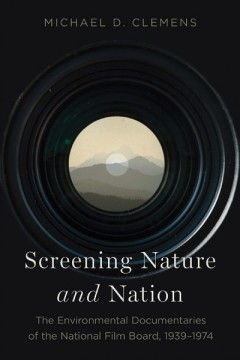
Screening Nature and Nation The Environmental Documentaries of the National …
The stunning portrayals of the Canadian landscape in the documentaries produced by the National Film Board of Canada not only influenced cinematic language, but shaped our perception of the environment. In the early days of the organization, nature films produced by the NFB supported the Canadian government’s nation-building project and show the state as an active participant in the cultural …
- Edition
- -
- ISBN/ISSN
- 9781771993357.01
- Collation
- -
- Series Title
- -
- Call Number
- 6x9, 232 pages
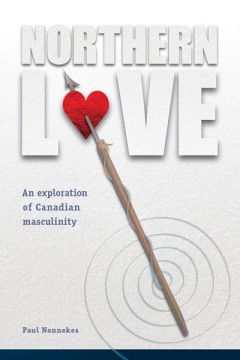
Northern Love An Exploration of Canadian Masculinity
In Northern Love, Paul Nonnekes proposes a conception of love suggestive of a distinctive model of Canadian masclinity. He pursues debates in psychoanalysis and cultural theory in relation to two representative male characters in novels by Rudy Wiebe (A Discovery of Strangers) and Robert Kroetsch (The Man from the Creek).
- Edition
- -
- ISBN/ISSN
- 9781897425220.01
- Collation
- -
- Series Title
- -
- Call Number
- 145 pages
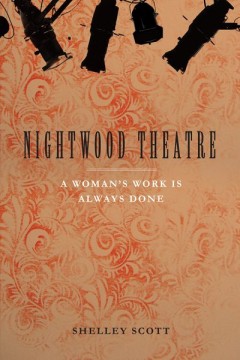
Nightwood Theatre A Woman’s Work Is Always Done
In Nightwood Theatre, Scott describes the company’s journey toward defining itself as a feminist theatre establishment, highlighting its artistic leadership based on its relevance to diverse communities of women. She also traces Nightwood’s relationship with the media and places the theatre in an international context by comparing its history to that of like companies in the U.K. and the U.S.
- Edition
- -
- ISBN/ISSN
- 9781897425558.01
- Collation
- -
- Series Title
- -
- Call Number
- 344 pages
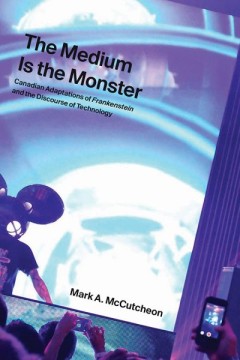
The Medium Is the Monster Canadian Adaptations of Frankenstein and the Disco…
Technology, a word that emerged historically first to denote the study of any art or technique, has come, in modernity, to describe advanced machines, industrial systems, and media. McCutcheon argues that it is Mary Shelley’s 1818 novel Frankenstein that effectively reinvented the meaning of the word for modern English. It was then Marshall McLuhan’s media theory and its adaptations in Cana…
- Edition
- -
- ISBN/ISSN
- 9781771992244.01
- Collation
- -
- Series Title
- -
- Call Number
- 6 x 9, 248 pages

The Law Is (Not) for Kids A Legal Rights Guide for Canadian Children and Teens
In this practical guide to the law for young people of Canada, Ned Lecic and Marvin Zuker provide an all-encompassing manual meant to empower and educate children and youth and those that serve them. The authors address questions about how rights and laws affect the lives of young people at home, at school, at work, and in their relationships as they draw attention to the many ways in which a p…
- Edition
- -
- ISBN/ISSN
- 9781771992374.01
- Collation
- -
- Series Title
- -
- Call Number
- 5 x 8, 304 pages

How to Read Like You Mean It
In this candid and concise volume, Kyle Conway, author of The Art of Communication in a Polarized World, considers how we can open ourselves to others and to ideas that scare us by reading difficult texts. Conway argues that because we resist ideas we don’t understand, we must embrace confusion as a constitutive part of understanding and meaningful exchange, whether between a reader and a tex…
- Edition
- -
- ISBN/ISSN
- 9781771993753
- Collation
- -
- Series Title
- -
- Call Number
- 6 x 9, 184 pages

How Canadians Communicate VI Food Promotion, Consumption, and Controversy
By examining topics such as the values embedded in food marketing, the locavore movement, food tourism, dinner parties, food bank donations, the moral panic surrounding obesity, food crises, and fears about food safety, the contributors to this volume paint a rich, and sometimes unsettling portrait of how food is represented, regulated, and consumed in Canada. With chapters from leading scholar…
- Edition
- -
- ISBN/ISSN
- 9781771990257.01
- Collation
- -
- Series Title
- -
- Call Number
- 336 pages
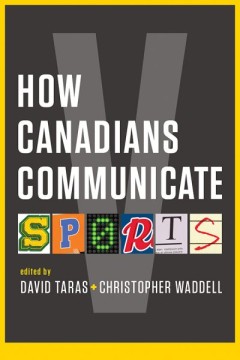
How Canadians Communicate V Sports
Writing from a variety of perspectives, the contributors to this collection set out to explore the impact of the media on our reception of, and attitudes toward, sports—to unpack the meanings that sports have for us as citizens and consumers. Some contributors probe the function of sports as spectacle—the escalation of violence, controversies over drug use, and the media’s coverage of tra…
- Edition
- -
- ISBN/ISSN
- 9781771990073.01
- Collation
- -
- Series Title
- -
- Call Number
- 395 pages
 Computer Science, Information & General Works
Computer Science, Information & General Works  Philosophy & Psychology
Philosophy & Psychology  Religion
Religion  Social Sciences
Social Sciences  Language
Language  Pure Science
Pure Science  Applied Sciences
Applied Sciences  Art & Recreation
Art & Recreation  Literature
Literature  History & Geography
History & Geography